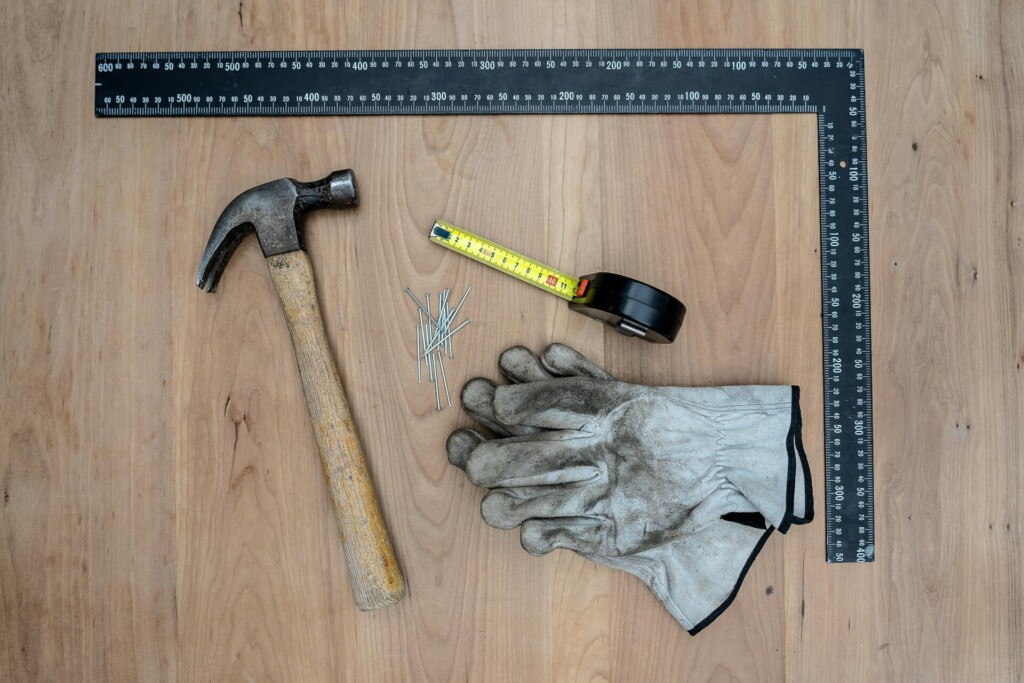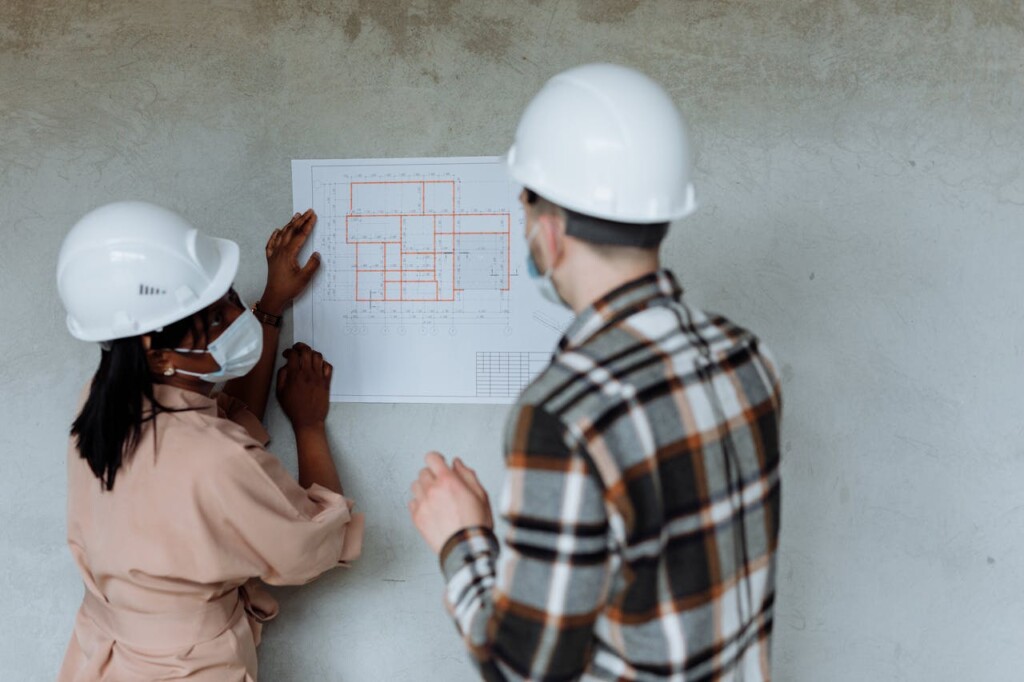Nearly 70,540 firms operated in the commercial building construction sector across the United States in 2024, reflecting the substantial demand for specialized facilities that power modern operations. These commercial and industrial contractors manage complex projects that require precise coordination between multiple trades, regulatory approvals, and operational requirements.
We handle everything from initial site selection through final occupancy for facilities like warehouses, distribution centers, cold storage plants, food processing operations, offices, and labs. This end-to-end approach covers due diligence, entitlements, architecture and engineering, permitting, and construction delivery using proven methods that align facility design with operational workflows.
Which Delivery Methods And Preconstruction Steps Should You Plan For?

Delivery method decisions drive how we coordinate design, construction, and vendor relationships. Design-build packages architectural services with construction under a single contract, streamlining communication and reducing project timelines. Build-to-suit arrangements let us tailor facility layout, workflow, and capacity to specific operational requirements before construction begins.
Early due diligence and entitlements lay the groundwork for successful project execution. We assess site conditions, review zoning requirements, and secure necessary approvals before detailed design work starts. This front-end investment prevents costly delays and change orders during construction phases.
Preconstruction Planning Components
Budget estimating establishes realistic cost expectations based on current market conditions and project scope. We develop detailed cost models that account for materials, labor, equipment, and contingencies. Construction scheduling coordinates trade sequences and material deliveries to maintain efficient workflow throughout the build process.
Bid management for subcontractors ensures competitive pricing while maintaining quality standards. We pre-qualify specialty contractors based on experience, safety records, and financial stability. This process creates a reliable pool of trade partners for electrical, mechanical, and specialized systems work.
Safety planning begins during preconstruction with comprehensive risk assessments and OSHA compliance protocols. We develop site-specific safety plans that address hazard identification, emergency procedures, and training requirements. These measures protect workers and reduce project liability exposure.
Coordination And Communication Systems
Vendor coordination integrates material suppliers, equipment manufacturers, and specialty contractors into unified project schedules. We maintain regular communication with all parties to track delivery dates, resolve conflicts, and adjust timelines as needed. Open communication channels prevent information gaps that can derail construction progress.
Our supervisors provide on-site oversight that aligns with OSHA safety guidelines and project specifications. They coordinate daily activities between subcontractors, monitor quality standards, and address issues before they impact schedules. This hands-on management approach keeps work moving according to plan and maintains safety compliance throughout construction phases.
What Facility Types And Scopes Are Typical In This Sector?
Commercial and industrial contractors handle diverse facility types across varying scales and complexity levels. The sector spans standard warehouse construction to specialized processing environments that demand precise engineering and controlled systems.
Concrete Tilt-Up Warehouses And Distribution Centers
Concrete tilt-up warehouses represent the backbone of modern distribution infrastructure. These facilities typically range from 20,000 square feet for regional operations to massive 600,000-plus square feet complexes that serve national distribution networks.
Distribution centers focus on rapid inventory turnover and efficient material flow. We design these facilities with higher dock door densities, wider column spacing, and clear heights that accommodate automated storage systems. The concrete tilt-up method allows for cost-effective construction while providing the structural integrity needed for heavy racking loads and equipment operations.
Cold Storage And Food Processing Facilities
Cold storage construction demands specialized expertise in thermal control and energy management. These facilities require advanced insulation systems, vapor barriers, and refrigeration infrastructure that can maintain precise temperature ranges for different product categories.
Food processing facilities combine production capabilities with storage and distribution functions. We integrate process equipment foundations, specialized drainage systems, and sanitary design standards that meet FDA and USDA requirements. These projects often include blast chilling areas, packaging zones, and quality control laboratories within the same structure.
Tenant Improvements For Offices And Labs
Office renovations within industrial complexes require balancing corporate functionality with operational efficiency. We handle buildouts that include conference facilities, administrative areas, and employee amenities while maintaining connectivity to production operations.
Lab buildouts demand precision in utility coordination and environmental controls. These spaces require specialized HVAC systems, fume management, and utility distribution that supports research and testing equipment. Clean room environments and controlled access zones add complexity to the construction process.
Project Scale And Investment Ranges
Project budgets reflect the wide spectrum of facility requirements across commercial and industrial construction. In major metropolitan markets, projects range from approximately $150,000 for basic tenant improvements to over $1.25 million for complex processing facilities with specialized systems.
Construction costs in recent years have averaged near the high-$70s per square foot, though this varies significantly based on facility type and system requirements. Cold storage facilities command higher per-square-foot costs due to insulation and refrigeration systems, while basic warehouse construction may fall below this average.
Project timelines extend up to about 50 weeks for large-scale facilities with complex systems and regulatory requirements. Distribution centers with automated material handling systems require longer construction periods than standard warehouse spaces. Food processing facilities often involve extended commissioning phases to validate equipment performance and regulatory compliance.
Scope complexity drives both cost and schedule variations. Simple warehouse shells require different engineering approaches than facilities with process equipment, specialized utilities, and controlled environments. The integration of automation systems, quality control areas, and specialized storage zones extends both construction timelines and project investment levels.
Which Self-Perform Trades And Technical Services Impact Schedule And Quality?

Self-perform capabilities allow contractors to maintain direct control over critical construction activities that significantly influence project timelines and quality outcomes. By using our own skilled crews for essential trades, we can coordinate work sequences more effectively and maintain consistent standards throughout the project.
Civil Construction And Structural Work
Civil concrete work forms the foundation of most commercial and industrial projects. We handle everything from site preparation and foundation pours to structural concrete elements. This direct control eliminates delays that often occur when coordinating with external concrete crews.
Structural steel fabrication and erection require precise timing and specialized equipment. When we fabricate steel components in-house and manage erection with our own crews, we can align steel delivery with construction schedules. This approach reduces the risk of delays that commonly arise when steel suppliers face production backlogs.
Mechanical And Process Systems
Pipe fabrication and installation capabilities enable us to handle complex piping systems for food processing, cold storage, and industrial facilities. Our teams fabricate piping assemblies off-site while coordinating installation sequences with other trades. This parallel approach speeds project completion while maintaining quality control.
Electrical and instrumentation services become critical when facilities require specialized control systems. We manage power distribution, lighting, and process control wiring using certified technicians. Direct oversight of electrical work prevents coordination issues that can delay startup and commissioning phases.
Specialized Assembly And Equipment Services
Modular assembly and installation services support projects that use prefabricated building components or process equipment modules. Our crews handle crane operations, rigging, and precise placement of heavy equipment. This self-perform capability eliminates scheduling conflicts between multiple specialty contractors.
Equipment assembly and rigging require specialized knowledge and equipment. We manage everything from HVAC unit placement to production line installation. Our rigging teams coordinate with crane operators and structural crews to ensure safe, efficient equipment positioning.
Industrial Maintenance And Specialized Services
For process-intensive facilities, boiler and furnace erection and repairs demand specific certifications and experience. Our certified welders handle high-temperature installations and maintenance work. These capabilities support both new construction and ongoing facility operations.
Pressure vessel fabrication and repairs require compliance with ASME code requirements and proper certifications. We maintain qualified welders and inspectors who can handle pressure vessel work according to relevant code stamps. This expertise becomes essential for food processing and industrial facilities.
High alloy welding capabilities support specialized piping and equipment that require corrosion-resistant materials. Our certified welders handle stainless steel and other specialty alloys commonly used in food processing and pharmaceutical facilities.
Operational Support Services
Resident maintenance services provide ongoing support for facility operations after construction completion. Our teams handle routine maintenance, emergency repairs, and system modifications. This continuity from construction to operations ensures long-term facility performance.
Maintenance and turnarounds require detailed planning and rapid execution to minimize facility downtime. We coordinate shutdown schedules with production teams and complete maintenance work within tight time windows. Our experience with facility systems enables efficient turnaround execution.
Emergency shutdowns and plant relocation services support facilities that need rapid response capabilities. Our crews can mobilize quickly to address equipment failures or coordinate facility relocations. This responsiveness protects operations and minimizes business interruption.
Access to a comprehensive construction equipment fleet supports all self-perform activities. We maintain cranes, earth-moving equipment, concrete pumps, and specialized tools that enable efficient project execution. This fleet eliminates equipment rental delays and ensures proper equipment availability when needed.
How Do Permitting, Safety, And Supervision Shape Delivery?
Construction schedules depend heavily on how quickly we move through permitting and code compliance. Local jurisdictions each have specific requirements for plan submissions, review timelines, and approval processes. We guide these documents through the regulatory maze, coordinating with building officials and addressing comments promptly to avoid delays that can stretch project timelines by weeks or months.
Our in-house architecture and engineering teams design facilities to meet operational needs while satisfying code requirements. For cold storage facilities, this means optimizing insulation systems and refrigeration capacity planning to meet energy codes. For food processing plants, we focus on process flow optimization that aligns with health department standards and fire safety requirements.
On-Site Supervision And Safety Coordination
Supervisors coordinate multiple moving parts while maintaining strict OSHA safety standards that protect workers and keep projects on schedule. Daily safety briefings, equipment inspections, and hazard identification prevent accidents that halt work and create liability issues. Our supervisors also manage subcontractor coordination, ensuring each trade follows safety protocols and stays within their scheduled work windows.
Safety coordination extends beyond basic compliance. We implement comprehensive safety programs that include fall protection systems for elevated work, proper scaffolding procedures, and electrical safety measures. These programs reduce workplace injuries and maintain the steady workflow essential for meeting delivery deadlines.
Quality Procedures For Specialized Work
Specialized fabrication and welding require documented quality procedures that demonstrate compliance with industry codes and client specifications. For pressure vessel work, we maintain relevant code stamps and follow inspection protocols that verify weld integrity and material certifications. High alloy welding operations demand specific procedures for heat treatment, non-destructive testing, and documentation.
Quality control checkpoints throughout construction catch issues before they impact schedules or require costly rework. Regular inspections of structural steel connections, concrete placement, and mechanical installations ensure work meets specifications and passes inspections on the first attempt.
Clear communication protocols keep all stakeholders informed during plan approvals, construction progress, and quality checkpoints. Weekly progress meetings, daily supervisor reports, and immediate notification of any issues prevent miscommunications that can derail schedules and budgets.
Conclusion And Next Steps

Commercial and industrial contractors align delivery methods, safety protocols, and self-perform trade capabilities to build facilities that support your operational requirements. The coordination between design-build planning, permitting strategies, and specialized construction services determines whether your project delivers on schedule and within budget. We approach each facility with the understanding that layout, systems integration, and compliance requirements must match your specific operational needs.
Start by defining your facility type and target square footage, then decide between design-build or build-to-suit approaches based on your timeline and customization needs. Set a realistic target budget and schedule that accounts for permitting processing times and specialty systems requirements. Ask potential contractors about their permitting approach, on-site supervision structure, and OSHA safety practices. Review their self-perform trades capabilities in areas like concrete work, structural steel, pipe fabrication, and E&I services to understand how these capabilities affect project control and schedule reliability.
Contact EB3 Construction to share your scope, square footage requirements, systems needs, and target timeline for an early budget estimate and construction planning discussion.




